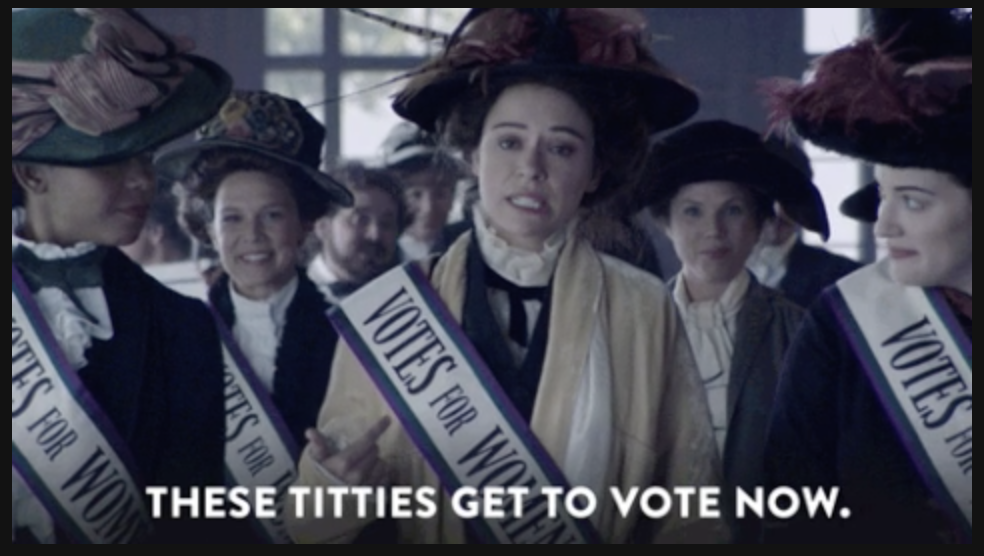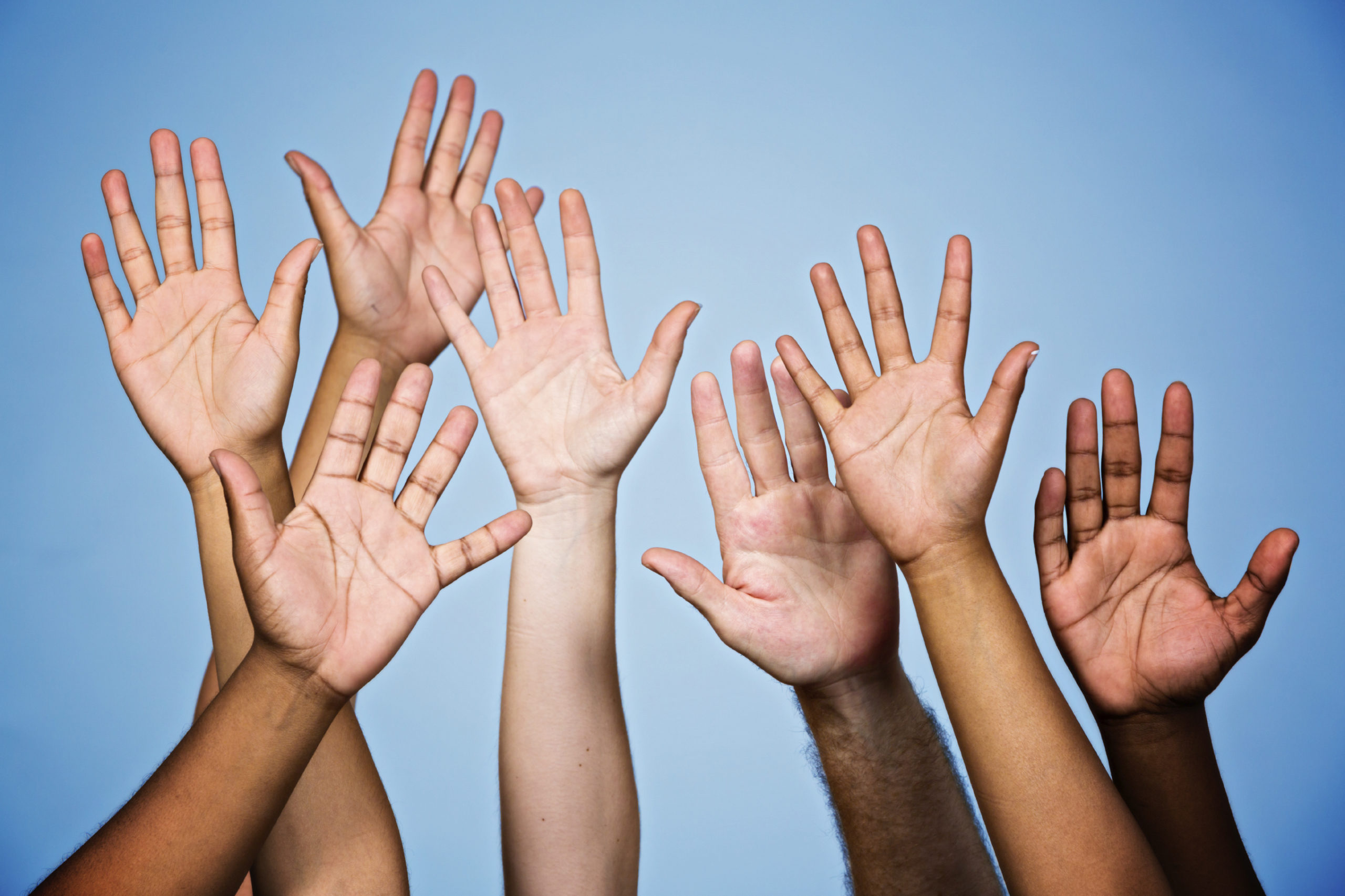Abortion rights, women of color, and LGBTQIA+ people are under attack. Pledge to join us in fighting for gender justice.
Pay It No Mind: Remembering the Black and Latine Trans Women at the Center of Women’s History

The voices of the women who raised me have been playing on repeat in my mind this Women’s History Month. Whether in southern drawls, Atlanta accents, or broken English, my mother, sisters, teachers, neighbors, Nanis, and Khalas have all been repeating a familiar old phrase: “Pay it no mind.” Whether this reminder was about boys, bullies, bad grades, or bad hair days, it meant to let something roll off your back, to stand up straight, and try again anyway. It meant that sometimes I would be hurt or afraid—inevitable in this life—but to feel the fear and do it anyway.
Marsha P. Johnson once said that the P. in her name stood for “pay it no mind.” She often used her middle name, and life motto, as a response to questions about her gender, as a refusal to be categorized into rigid gender constructs. She embodied the spirit of the “pay it no mind” attitude I grew up with, long before I came to know and admire her legacy. She paid the rules of cisness no mind and invited us to do the same.
We need to capture this spirit more than ever this Women’s History Month, which has been a rough month for gender justice, abroad and at home. Marked with increased efforts to enact abortion bans, transphobic policies, and cuts to crucial family support programs, this Women’s History Month has been terrifying to live through, let alone find ways to celebrate. That’s why right now, I am turning to incredible trans activists and feminists like Marsha P. Johnson who embody the lesson of “pay it no mind.”
Marsha P. Johnson
“Darling, I want my gay rights now…especially the women.”
There’s so much more to Marsha “Pay It No Mind” Johnson, like the rest of the women on this list, than her trauma. However, when I think about the spirit of fearlessness and refusal that I am trying to embody this March, her life reminds me how to live through fear. Marsha is a reminder, that even amid the very real fears I feel as a woman right now, there have always been systems of care and support. Known in her community as “Saint Marsha,” she gave people clothes and food, even when she had very little of her either. I must imagine she felt fear when she had little to share, lived on the streets at times, and was even banned in 1973 from the increasingly white and cis-male gay pride parade. And yet she found it in herself and her community to build networks of care, with little to give, to show up at the pride parade with STAR anyway. Marsha reminds me that there will always be caring communities in spite of—or maybe because of—systematic hate and prejudice, if only we are brave enough to create them.
Sylvia Rivera
“The more that they beat us, the more we went back for. We were determined that evening that we were going to be a liberated, free community, which we did acquire that… I will struggle ‘til the day I die, and my main struggle right now is that my community will seek the rights that are justly ours.”
Sylvia Rivera, a close friend of Marsha P. Johnson, is another activist to turn to for inspiration this month. Her bravery started when she was very young. She was bullied for her use of makeup at school and was even suspended following an attack by another student because of her own commitment to her self-expression. She said: “I was wearing makeup in the fourth grade. I did it because I liked makeup, and I didn’t think there was anything wrong with it.”
In a world that uses every tactic it can to fit us neatly into boxes that should never exist, Sylvia reminds us that despite the increasingly violent rhetoric and bullying tactics attempting to erase transness (which has always existed), the more they “beat us” the more we fight back. We take care of each other while doing it, as Marsha took care of Sylvia and so many others. And we keep fighting. We always have.
Ashley Diamond
“Standing up for my community is hard—our society devalues and discards Black trans women —and the people who have power over my life punish me for speaking out. But with all the threats and injustices facing trans people, and especially trans people of color right now, we have no choice but to fight.”
Ashley Diamond is an incredible activist—fighting for the civil rights of incarcerated trans people. Because of her own experience being unconstitutionally and violently forced into a men’s prison in Georgia, Ashley knows how hard it is to live as an incarcerated Black trans woman—and that standing up for her community is even harder. Yet, she does it anyway, and her work and courage resulted in a constitutional victory in Georgia that paved the way for improvements for the conditions of trans people in the prison system in 2015. I am remembering her work and her resilience—resilience she should never have needed to have, but found anyway, like Marsha, like Sylvia. Resilience that we will all need to find now, more than ever, because as Ashley wrote, we have no choice but to fight.
When things feel hard, as they certainly do, I will repeat their names like a spell: “Marsha, Sylvia, Ashley.” I will draw on the many more names that history remembers, and the many many more that history does not remember: the unnamed fighters, lovers, and carers who have made this world keep moving toward justice for her, and justice for all, since the dawn of time. Our fight is hard, and in many ways, harder than ever. I won’t lie to you or myself about that. But what is hard is not impossible. With love and care for each other, we can all find ways to embody the fearlessness that is only possible when we share and hold our fears in community. We can find ways to refuse the fragile boxes of gender categories that shatter when we affirm each other’s full selfhood. We can and we will pay it no mind, because we will be busy paying mind to what matters: to our inevitable freedom, to the fight, to the care, to the love. We can, and we will. As Marsha, Sylvia, and Ashley remind us, we always have.




